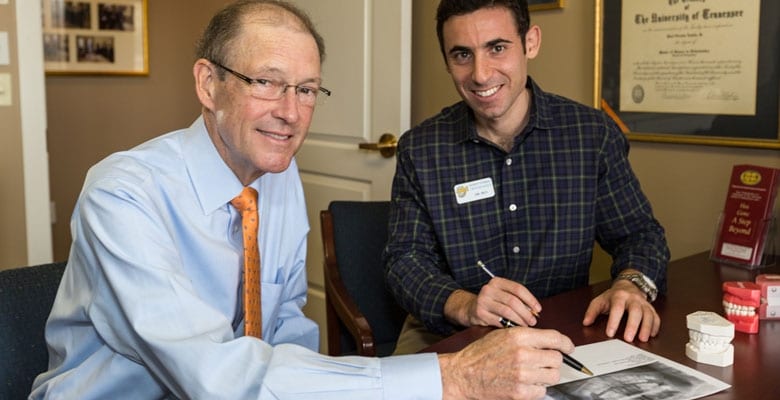
1. Is the Orthodontist Board Certified?
Not every orthodontist is Board Certified. The Board Certification process involves both a written and clinical examination, along with showing your final orthodontic results to expert examiners. A Board Certified Orthodontist has gone a step beyond, and has proven that their results meet the requirements of some of the greatest experts in the field of Orthodontics. You may see the terms ‘board eligible’ and ‘certified orthodontic specialist’ listed under other orthodontists’ credentials – these are not terms recognized by any Orthodontic Board. A Board Certified Orthodontist will have the following symbol listed:
To find out if your Orthodontist is Board Certified, check this link: http://www.americanboardortho.com/public/
2. Has the Orthodontist graduated from an accredited Orthodontic Residency Program?
All dental professionals are licensed to place braces and Invisalign, but not all went to school for it. An Orthodontist has completed an additional 2-3 year residency, along with completing a 4-year dental degree. In today’s economic climate, some general dentists are performing orthodontic procedures that are better left to an orthodontic specialist.
Check our doctor’s pages out to find out where Dr. Austin & Dr. Fishbein completed their orthodontic residency programs.
3. Who puts on the braces?
In my professional option, the placement of the braces is the most important, technical, and critical procedure I do, and I do not delegate this procedure to anyone else in the office… ever. At other offices I have found this is not the case. The legality of assistants placing the brackets is also questionable. Make sure to ask this question at your initial consultation.
4. Do fees include the retainers? Any hidden fees?
I’ve heard horror stories of patients being stuck in braces due to not being able to pay the final ‘retainer fee.’ In my opinion, this is an unethical policy, and braces should come off when they’re ready to come off. Additionally, some providers start to charge extra when orthodontic treatment takes longer than expected. Make sure to get an exact fee quote at the time of the initial consultation, and make sure there are no hidden fees that will come up at the end of treatment.
5. How are emergencies handled?
At some offices, the orthodontist lives in another town, city, or state. This means that in the case of a serious orthodontic emergency, the only option is delegation to an assistant that lives in the area. At Austin & Fishbein Orthodontics, every patient is given the doctors cell phone number, and it is even on the office’s answering machine. In the event of an orthodontic emergency, our doctors will be able to take care of it in a timely manner.
Have any questions regarding what is best for you or your families’ orthodontic treatment? Contact us at our Pensacola, Navarre, or Perdido orthodontic offices and we will be sure to point you in the right direction.


